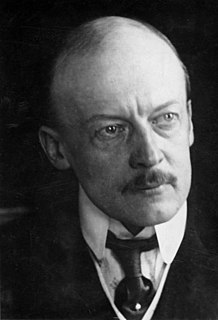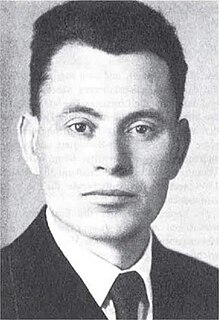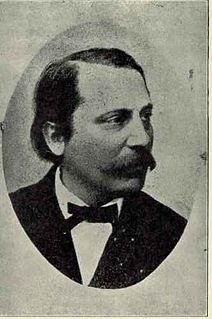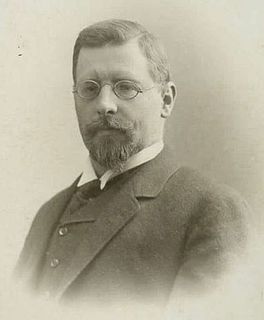 W
WAlois Leopold Johann Baptist Graf Lexa von Aehrenthal was an Austrian diplomat. As Imperial Foreign Minister Aehrenthal formulated and executed the formal and complete annexation of Bosnia and Herzegovina and their integration into the Austro-Hungarian Empire in 1908. With the annexation he sought to permanently block in the Balkan south of the Empire the emergence of inter- and intra-ethnic nationalisms amongst the multiplicity of peoples there on the basis of their shared religious beliefs and ethnic affiliations. His actions precipitated an international crisis because he sought to achieve his objectives by negotiation of Russian acceptance of the annexation in exchange for Austrian support for greater Russian access from the Black Sea to the Mediterranean through the Straits of the Dardanelles, which Britain and France would supposedly accept since they had recently become allied with Imperial Russia. Aehrenthal, seeking to limit objections in Russia to any support for the annexation began secret negotiations with Russian foreign minister Alexander Izvolsky. The annexation ultimately damaged Austro-Russian collaboration on settling Balkan questions. Also, it stirred chauvinist popular emotion in Russia, which felt humiliated in a sphere of vital interest to it.
 W
WCount Gyula Andrássy de Csíkszentkirály et Krasznahorka was a Hungarian statesman, who served as Prime Minister of Hungary (1867–1871) and subsequently as Foreign Minister of Austria-Hungary (1871–1879). Andrássy was a conservative; his foreign policies looked to expanding the Empire into Southeast Europe, preferably with British and German support, and without alienating Turkey. He saw Russia as the main adversary, because of its own expansionist policies toward Slavic and Orthodox areas. He distrusted Slavic nationalist movements as a threat to his multi-ethnic empire.
 W
WAlbert György Gyula Mária Apponyi, Count of Nagyappony was a Hungarian aristocrat and politician. He was a Board Member of the Hungarian Academy of Sciences, Chairman of St Stephen Academy (hu) from 1921 to 1933, and a knight of the Austrian Golden Fleece from 1921.
 W
WCount Miklós Bánffy de Losoncz was a Hungarian nobleman, liberal politician, and historical novelist. His books include The Transylvanian Trilogy, and The Phoenix Land.
 W
WLeopold Anton Johann Sigismund Josef Korsinus Ferdinand Graf Berchtold von und zu Ungarschitz, Frättling und Püllütz, was an Austro-Hungarian politician, diplomat and statesman who served as Imperial Foreign Minister at the outbreak of World War I.
 W
WJanez Bleiweis was a Slovene conservative politician, journalist, physician, veterinarian, and public figure. He was the leader of the so-called Old Slovene political movement. Already during his lifetime, he was called father of the nation.
 W
WEtbin Henrik Costa was a Slovene national conservative politician and author. Together with Janez Bleiweis and Lovro Toman, he was one of the leaders of the Old Slovene political party.
 W
WAlcide Amedeo Francesco De Gasperi was an Italian statesman who founded the Christian Democracy party and served as Prime Minister of Italy in eight successive coalition governments from 1945 to 1953.
 W
WKarel Dežman, also known as Dragotin Dežman and Karl Deschmann, was a Carniolan liberal politician and natural scientist. He was one of the most prominent personalities of the political, cultural, and scientific developments in the 19th-century Duchy of Carniola. He is considered one of the fathers of modern archeology in what is today Slovenia. He also made important contributions in botany, zoology, mineralogy, geology and mineralogy. He was the first director of the Provincial Museum of Carniola, now the National Museum of Slovenia. Due to his switch from Slovene liberal nationalism to Austrian centralism and pro-German cultural stances, he became a symbol of national renegadism.
 W
WAndrej Einspieler was a Slovene politician, Roman Catholic priest and journalist, and one of the early leaders of the Old Slovene national movement in the 19th century. He was known as the "father of the Carinthian Slovenes".
 W
WIvan Yakovych Franko was a Ukrainian poet, writer, social and literary critic, journalist, interpreter, economist, political activist, doctor of philosophy, ethnographer, and the author of the first detective novels and modern poetry in the Ukrainian language.
 W
WCyril Ivanovich Genik was a Ukrainian-Canadian immigration agent. He is a Person of National Historic Significance.
 W
WCarl Giskra was a statesman of the Austrian Empire.
 W
WNikola "Nikša" Gradi Italian: Nicolò Gradi; 1825–1894) was a writer, politician, and lawyer from Dubrovnik, a descendant of the illustrious Ragusan patrician family Gradi.
 W
WBéla Ferenc József Grünwald de Bártfa was a Hungarian nationalist politician and historian who was active in Upper Hungary.
 W
WKonrad Maria Eusebius Prinz zu Hohenlohe-Waldenburg-Schillingsfürst was an Austrian aristocrat and statesman. He briefly served as Prime Minister of Austria (Cisleithania) in Austria–Hungary in 1906.
 W
WCount Karl Sigmund von Hohenwart was an Austrian politician who served as Minister-President of Austria in 1871. Hohenwart’s government attempted to implement a Federalist agreement between Bohemia and the governing Austro-Hungarian Empire. This attempt to conciliate the Bohemian Czechs caused massive criticism, and led to the fall of the Hohenwart government only months after it assumed office.
 W
WSándor József Hollán the Younger was a Hungarian politician and state secretary.
 W
WSándor József Hollán the Elder was a Hungarian politician and state secretary.
 W
WJosef "Sepp" Janko was a Volksgruppenführer of the Danube Swabian German Cultural Association in Yugoslavia in 1939, and later was appointed SS Obersturmführer during World War II.
 W
WCount Gustav Siegmund Kálnoky, was an Austro-Hungarian diplomat and statesman.
 W
WKarel Lavrič, also spelled Laurič or Lauritsch, was a Carniolan liberal politician and lawyer from the Austrian Littoral. He was of Slovene descent and was one of the most prominent activists of the Young Slovene movement. Together with the conservative Lovro Toman, he was considered among the most popular Slovene politicians of the 19th century. He was also called the 'tribune of Goriška'.
 W
WGyörgy Majláth, also known by his German name Georg von Majláth, was a Hungarian politician.
 W
WIvan Grigorievitch Naumovich (Polish: Iwan Naumowicz, Russian: Ива́н Григо́рьевич Наумо́вич, Ukrainian: Іва́н Григо́рович Нау́мович;, was a priest, member of parliament, writer, and major figure in the Russophile movement in western Ukraine. His article Glimpse into the future was considered the most important manifesto of Galician Russophilism
 W
WCount Anton Pace, Baron of Friedensberg was an Austrian aristocrat, politician, senior government official, and Imperial and Royal Privy Councilman. He served as the President of Bukovina and later as a life member of the Imperial Council of Austria-Hungary.
 W
WAnton von Prokesch-Osten, German: Anton Graf Prokesch von Osten was an Austrian diplomat, statesman and general.
 W
WFranz Schuselka was a politician of the Austrian Empire.
 W
WVasyl Semenovych Stefanyk was an influential Ukrainian modernist writer and political activist. He was a member of the Austrian parliament from 1908 to 1918.
 W
WEmil Robert Wilhelm Steinbach was an Austrian politician.
 W
WIvan Šusteršič, also spelled Šušteršič was a Slovenian lawyer and politician.
 W
WLovro Toman was a Slovene Romantic nationalist revolutionary activist during the Revolution of 1848, known as the person who in Ljubljana, at the Wolf Street 8, raised the Slovene tricolor for the first time in history in response to a German flag raised on top of the Ljubljana Castle. Later he helped founding one of the first Slovene publishing houses, the Slovenska matica. He was a Slovene national conservative politician and member of the Austrian Parliament. Together with Janez Bleiweis and Etbin Henrik Costa, he was part of the leadership of the Old Slovene party.
 W
WJoseph Unger was an Austrian jurist and statesman. Having studied law at the university of his native city, he in 1850 was appointed assistant librarian, and in 1852 privatdozent, at his alma mater. The following year he was called to Prague as assistant professor at the university, and in 1855 to Vienna in a similar capacity. In 1857 he was appointed professor of jurisprudence at the latter institution. In 1867 he was successively elected a member of the Austrian Landtag and of the Reichsrat; but on account of ill health he had to resign in the following year. Appointed in 1869 by the Emperor Franz Joseph a life-member of the House of Lords, he soon became the whip of the Liberal Party. Two years later he became minister in Prince Auersperg's cabinet, but resigned upon the prime minister's defeat in 1879. In 1881 he was appointed president of the Reichsgericht. Unger converted from Judaism to Roman Catholicism in 1852.
 W
WCount Georg Wassilko von Serecki, descended from an old Modavian boyar family, was an Austro-Hungarian-born ethnic Romanian statesman, Landeshauptmann of the Duchy of Bucovina and hereditary member of the Herrenhaus, the Upper House of the Imperial Council of Austria.
 W
WDr. Salo Weisselberger, Jewish leader, jurist and judge, was a member of Bukovina's Landtag during the Austro-Hungarian Empire, Mayor of Czernowitz in 1912–1914, a member of the Senate of Romania, and then a member of its Chamber of Deputies.
 W
WSamson Wertheimer was chief rabbi of Hungary and Moravia, and rabbi of Eisenstadt. He was also an Austrian financier, court Jew and Shtadlan to Austrian Emperor Leopold I.